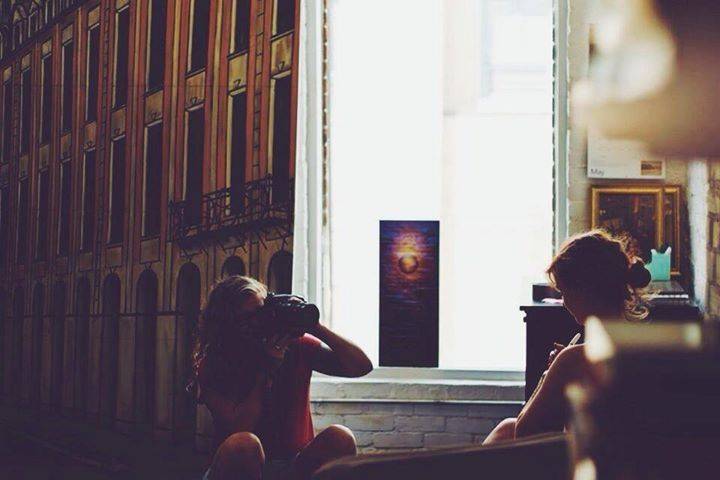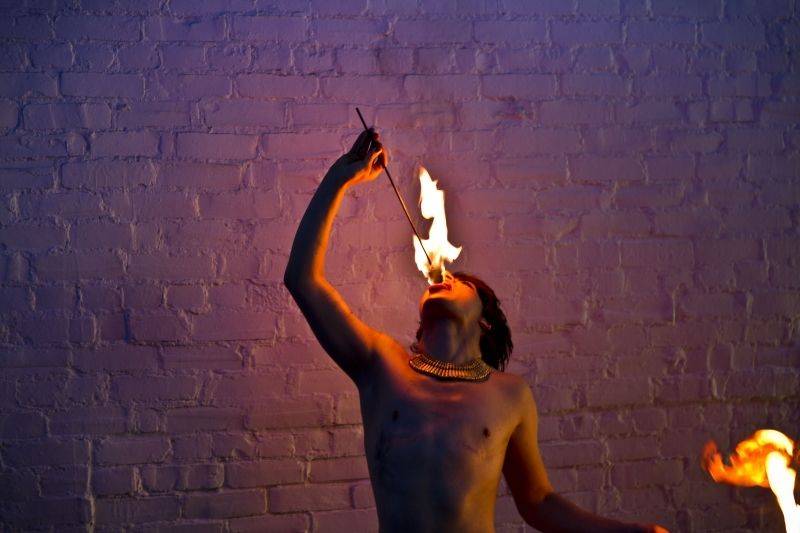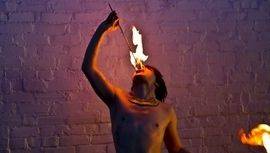
The relationship we Americans have with our bodies is pretty fucked up. Our bodies house our spirits. We feel, taste, and experience our lives through our bodies. Our bodies provide us with our sensory and sensual thrills and chills and allow us to connect with others. Our bodies hold the organs that keep us healthy and alive. We use them to attract lovers and to defend ourselves from all threats. They allow us to run, escape, feel, fuck, and give pleasure to those we love and/or enjoy. Their reflection is our identity, and, for better or worse, we are stuck with them. And yet we judge them and compare them and abuse them and degrade them with every vice and careless action of our finite lives. We do everything to our bodies but love them.
And when we are bare, naked and vulnerable, we teach ourselves to be ashamed of our bodies in their simplest states. Our children can sit next to us and watch bodies wounded, killed, and mutilated for their entertainment at any given hour on the internet or in films or on television, yet a nude body is something to censor and hide from them. We obscure and cover them with black dots and tell them those parts are “private” while the media displays them in all their titillating glory. Most of our media ratings systems view nudity as the chief sin. I recently noticed how fucked up our attitudes are in most recent season of American Horror Story: Coven. The network censors had no issue with the show presenting bodies incinerated, raped, and mutilated for our viewing pleasure, culminating in a busload of horny frat boys being sliced and diced into a frat-boy jigsaw puzzle by a supernatural bus crash, only later to be reassembled a la Frankenstein’s Monster into a psychotic moppet with a penchant for nude tantrums. But when the naked body parts were displayed in a gruesome scene of reassembly, the censors insisted the corpse be nipple and genital-free, and so the prosthetic boy parts resembled a nightmarish Ken doll. While I don’t have children, I don’t think the matter-of-fact sight of a nude body is nearly as disturbing to a child as one missing vital parts. We make children grow up in a world where all of their most intriguing and intimate questions about their bodies are covered with black dots or pixilated into a blurry neutered monster gyrating in an impossible sexual dance. And after we teach them their bodies should remain invisible, we teach them to compare and judge their bodies with their peers and every computer-enhanced celebrity image they encounter on a daily basis. It’s a miracle any of us ever realize how beautiful and special our bodies are with the way we Americans play a forbidden game of peek-a-boo with our privates.
And yet.
 Now through August 27th, at Indi Go Artist Co-op in downtown Champaign, The Bare Project is on full exhibit. The project focuses on black and white photography featuring a variety of local folks reclaiming and owning their bodies through exposing them in various states of triumph and self-consciousness.
Now through August 27th, at Indi Go Artist Co-op in downtown Champaign, The Bare Project is on full exhibit. The project focuses on black and white photography featuring a variety of local folks reclaiming and owning their bodies through exposing them in various states of triumph and self-consciousness.
The project is a photography series created by area artists Emily Otnes, Anna Longworth, and Alisa Greene. The goal of the project is to redefine and examine our definition of beauty through telling the stories of local models in both words and images. It is an arresting and frank exhibit, full of deeply personal and unique stories.
Among these, three transgender models in various states of transition deal with the disconnect between their spiritual and physical selves and how they’ve battled to reconnect their bodies and souls and become whole. Various female models deal with obesity, anorexia, and the effects of disease and physical and sexual abuse on their body image and self-worth, using their photos as a way of reclaiming what has been taken from them. A slight young man muses about the joy of feeling the warm sun on his nude flesh every morning, while eating his breakfast. A fit lifter shows the rewards of his power-training and his skill at the sport. Some of the images are nude and stark, others tastefully lit and demurely posed. Still others are in various states of dress, but all are showing a body they’ve had past issues with, but are trying to make peace with through this experience. It is a beautifully intimate experience to view.

This exhibit will make you think of your own issues with your body and the bodies of others, and the casual permission you give yourself to judge others’ bodies on a regular basis. It will make you think of the messages we give our children about their bodies and how those messages affect their outlooks and their world. It is a thought-provoking and eye-opening not-to-be-missed experience.








